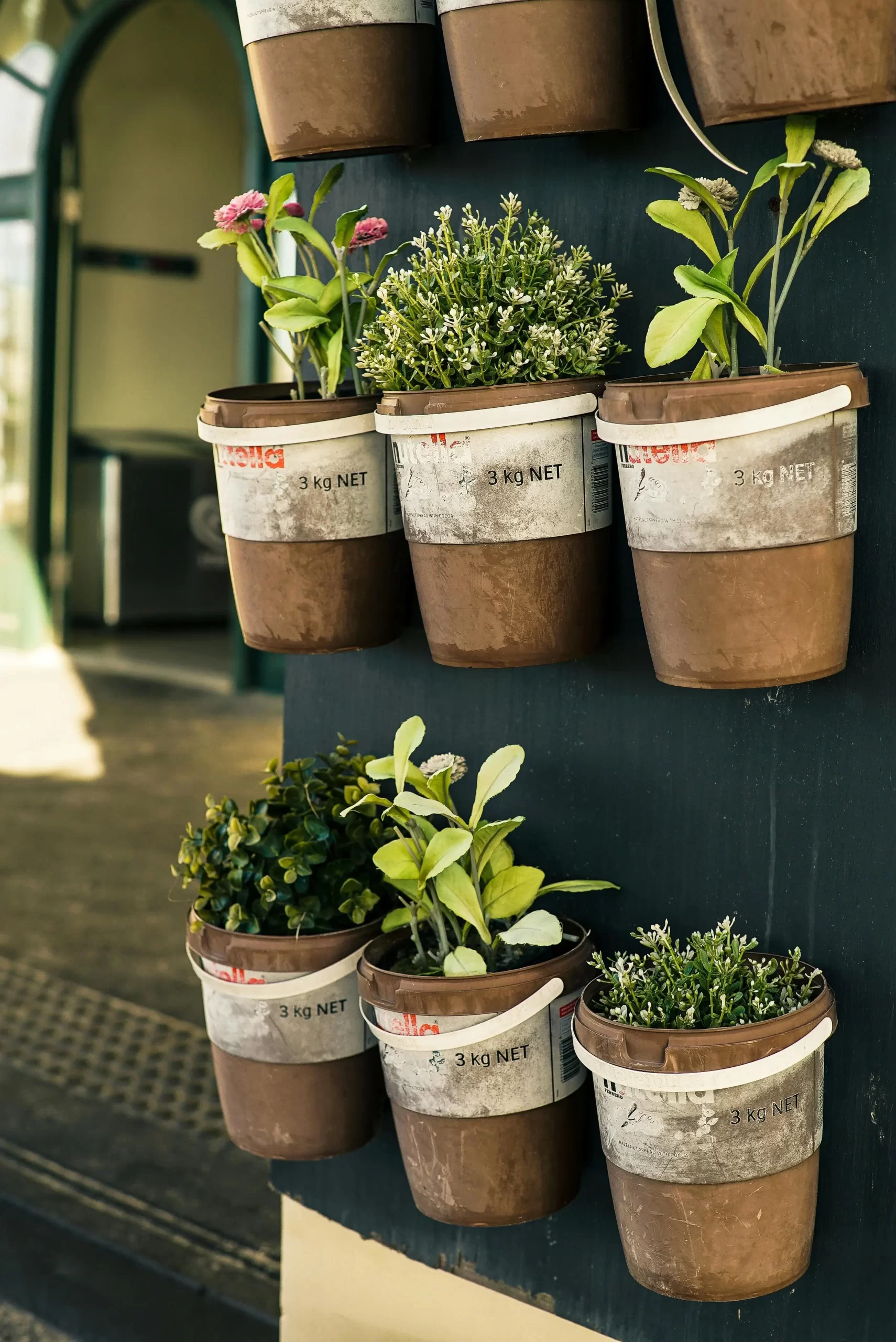
Sustainable gardening is a growing trend, reflecting an increased awareness of the need to protect our environment while cultivating our living spaces. The challenge for those with small gardens is practicing sustainability in limited areas. Fortunately, small spaces can still host eco-friendly gardens that benefit both the environment and the gardener. This blog explores sustainable gardening practices tailored to small spaces, offering practical tips and insights to help you create a green oasis in even the tiniest of gardens.
Why Sustainable Gardening Matters
Sustainable gardening aims to reduce the negative impact on the environment by minimizing resource use, reducing waste, and promoting biodiversity. Sustainability is particularly important in small spaces because these gardens often exist in urban environments where resources like water, soil, and sunlight are limited.
The principles of sustainable gardening include:
Conserving Water: Using water wisely to prevent waste.
Building Healthy Soil: Enhancing soil fertility without relying on chemical fertilizers.
Supporting Biodiversity: Encouraging a variety of plant and animal life in the garden.
Minimizing Waste: Reducing the amount of garden waste through composting and recycling.
Using Organic Practices: Avoiding synthetic pesticides and fertilizers.
Choosing the Right Plants
The first step in creating a sustainable small-space garden is selecting the right plants. Opt for native plants, which naturally adapt to your region’s climate and soil conditions and require less water and care. Additionally, native plants support local wildlife, providing food and habitat for pollinators like bees and butterflies.
Consider plants that thrive in containers or vertical gardens for small spaces. Dwarf varieties of vegetables, herbs, and fruit trees are perfect for confined areas. Herbs like basil, rosemary, and thyme not only grow well in pots but also provide fresh flavors for your kitchen. Similarly, dwarf fruit trees like lemon, fig, or apple can produce bountiful harvests in small spaces.
Water Conservation Techniques
Water is a valuable asset, particularly in urban areas. Sustainable gardening practices focus on using water efficiently and minimizing waste.
Rainwater Harvesting: Collecting rainwater is an excellent way to conserve water. You can install a small rain barrel to capture runoff from your roof, which can then be used to water your garden. Even a modest amount of rainwater can go a long way in a small space.
Drip Irrigation: Drip irrigation systems supply water straight to the plant roots, minimizing evaporation and runoff. This method ensures that plants receive the moisture they need without wasting water. Drip systems can be easily set up in small gardens, whether in containers, raised beds, or vertical gardens.
Mulching: Applying mulch to the soil surface helps retain moisture, suppress weeds, and regulate soil temperature. Organic mulches like straw, wood chips, or compost break down over time, adding nutrients to the soil. In small gardens, mulching can significantly reduce the need for frequent watering.
Water-Wise Plants: Choose plants that are drought-tolerant and require less water. Succulents, cacti, and Mediterranean herbs like lavender and sage are excellent choices for small space gardens with limited water supply.
Soil Health and Composting
Nutritious soil is the cornerstone of a sustainable garden. Maintaining soil fertility in small spaces can be challenging, but composting offers an effective solution.
Composting: Composting is the process of recycling organic waste into nutrient-rich soil. Even in a small space, you can set up a compact compost bin or worm composting system (vermicomposting). Composting kitchen scraps, garden waste, and even cardboard or paper helps reduce landfill waste while enriching your soil with vital nutrients.
Soil Amendments: In addition to compost, you can improve soil health by adding natural amendments like aged manure, leaf mold, or green manure (cover crops). These amendments boost soil structure, water retention, and nutrient content, creating an ideal environment for plant growth.
Avoiding Chemical Fertilizers: Synthetic fertilizers can harm soil health and contribute to water pollution. Instead, rely on organic fertilizers like compost, bone meal, or fish emulsion to nourish your plants naturally. Organic fertilizers release nutrients slowly, ensuring a steady supply to plants without the risk of over-fertilization.
Supporting Biodiversity
A sustainable garden fosters biodiversity, supporting various plant and animal life. By incorporating a variety of plants and natural elements, even small spaces can create a thriving ecosystem.
Pollinator-Friendly Plants: Choose plants that attract pollinators, such as bees, butterflies, and hummingbirds. Flowers like coneflower, echinacea, and milkweed are excellent for drawing pollinators to your garden. By supporting these essential creatures, you help ensure the health of your garden and the broader environment.
Companion Planting: Companion planting is the practice of cultivating various plants that provide mutual benefits. For example, planting marigolds with tomatoes can deter pests, while beans can fix nitrogen in the soil, benefiting neighboring plants. Companion planting encourages a variety of plants and decreases reliance on chemicals.
Providing Habitat: Small spaces can still offer habitat for wildlife. Consider adding bird feeders, bat houses, or insect hotels to your garden. These elements provide shelter and food for various creatures, contributing to a balanced ecosystem.
Reducing Lawn Areas: Traditional lawns require significant water, fertilizer, and maintenance. In small spaces, consider reducing or eliminating lawns in favor of garden beds, ground covers, or permeable surfaces like gravel or mulch. These alternatives support biodiversity and reduce the environmental impact of your garden.
Minimizing Waste
Sustainable gardening also involves reducing the amount of waste produced in your garden. Small spaces can generate a surprising amount of waste, but you can minimize your environmental footprint carefully.
Recycling and Reusing Materials: Before discarding items, think creatively about how they can be repurposed in your garden. Old containers, pallets, or bricks can be transformed into planters, raised beds, or garden pathways. Recycling materials reduces waste and gives your garden a unique, personal touch.
Composting: As mentioned earlier, composting is a key practice in reducing garden waste. By recycling organic materials into compost, you not only reduce waste but also create valuable soil amendments for your garden.
Avoiding Single-Use Plastics: Gardening often involves using plastic pots, trays, and tools. Where possible, opt for biodegradable or reusable alternatives. Biodegradable pots made from coconut coir or peat can be planted directly into the soil, reducing plastic waste. Reusable tools and containers made from metal or wood are more sustainable choices.
Buy in Bulk: When purchasing soil, compost, or mulch, consider buying in bulk rather than in individual plastic bags. Bulk purchases often result in less packaging waste and can be more cost-effective.
Organic Gardening Practices
Organic gardening is at the heart of sustainable gardening. By avoiding synthetic chemicals and embracing natural methods, you can create a healthier, more environmentally friendly garden.
Natural Pest Control: Instead of chemical pesticides, use natural methods to control pests. Introduce beneficial insects like ladybugs or predatory nematodes, which prey on harmful pests. You can also use homemade sprays made from garlic, neem oil, or soap to deter insects. Additionally, practice crop rotation and companion planting to prevent pest infestations.
Organic Fertilizers: As mentioned earlier, nourish your plants with organic fertilizers like compost, worm castings, or fish emulsion. These fertilizers are less likely to harm the environment and help build healthy soil.
Weed Management: Using manual methods to control weeds instead of chemical herbicides. Mulching, hand-weeding, and using weed barriers effectively keep weeds at bay without harming the environment.
Seed Saving: Saving seeds from your plants allows you to grow the same varieties year after year without purchasing new seeds. This practice is both sustainable and economical, preserving heirloom and open-pollinated varieties.
Creating a Community of Sustainable Gardeners
Finally, sustainable gardening is not just about individual practices; it’s also about building a community of like-minded gardeners. Sharing knowledge, resources, and experiences with others can help spread sustainable practices and create a positive impact beyond your own garden.
Join a Gardening Group: Local gardening clubs or online communities can provide valuable support and advice. These groups often share resources like seeds, tools, and compost, reducing the need to buy new materials.
Garden Swaps: Participate in plant or seed swaps with neighbors or fellow gardeners. Exchanging plants and seeds reduces waste and promotes biodiversity in your community.
Volunteer in Community Gardens: Community gardens often promote sustainable practices and provide space for those without their own gardens. Volunteering at a community garden allows you to learn new skills, share your knowledge, and contribute to a greener community.
Educate Others: Share your sustainable gardening practices with friends, family, and neighbors. Whether through social media, workshops, or casual conversations, spreading the word about eco-friendly gardening can inspire others to adopt similar practices.
Conclusion
Sustainable gardening in small spaces is not only possible but also incredibly rewarding. By choosing the right plants, conserving water, building healthy soil, supporting biodiversity, minimizing waste, and using organic practices, you can create a beautiful and eco-friendly garden that benefits both you and the environment. As you cultivate your small space garden, remember that even the smallest actions can significantly impact the planet. Embrace sustainable gardening practices and watch your garden thrive in harmony with nature.

